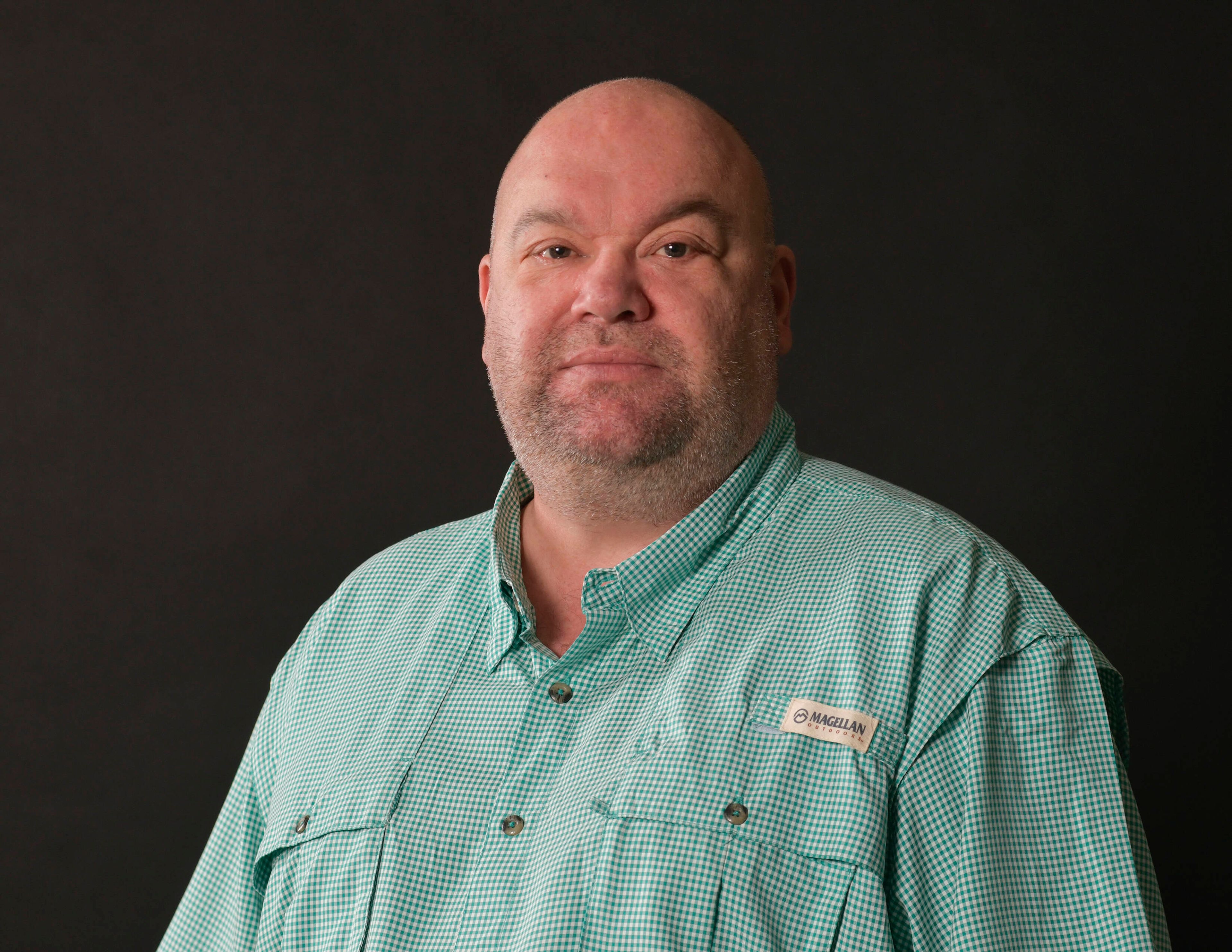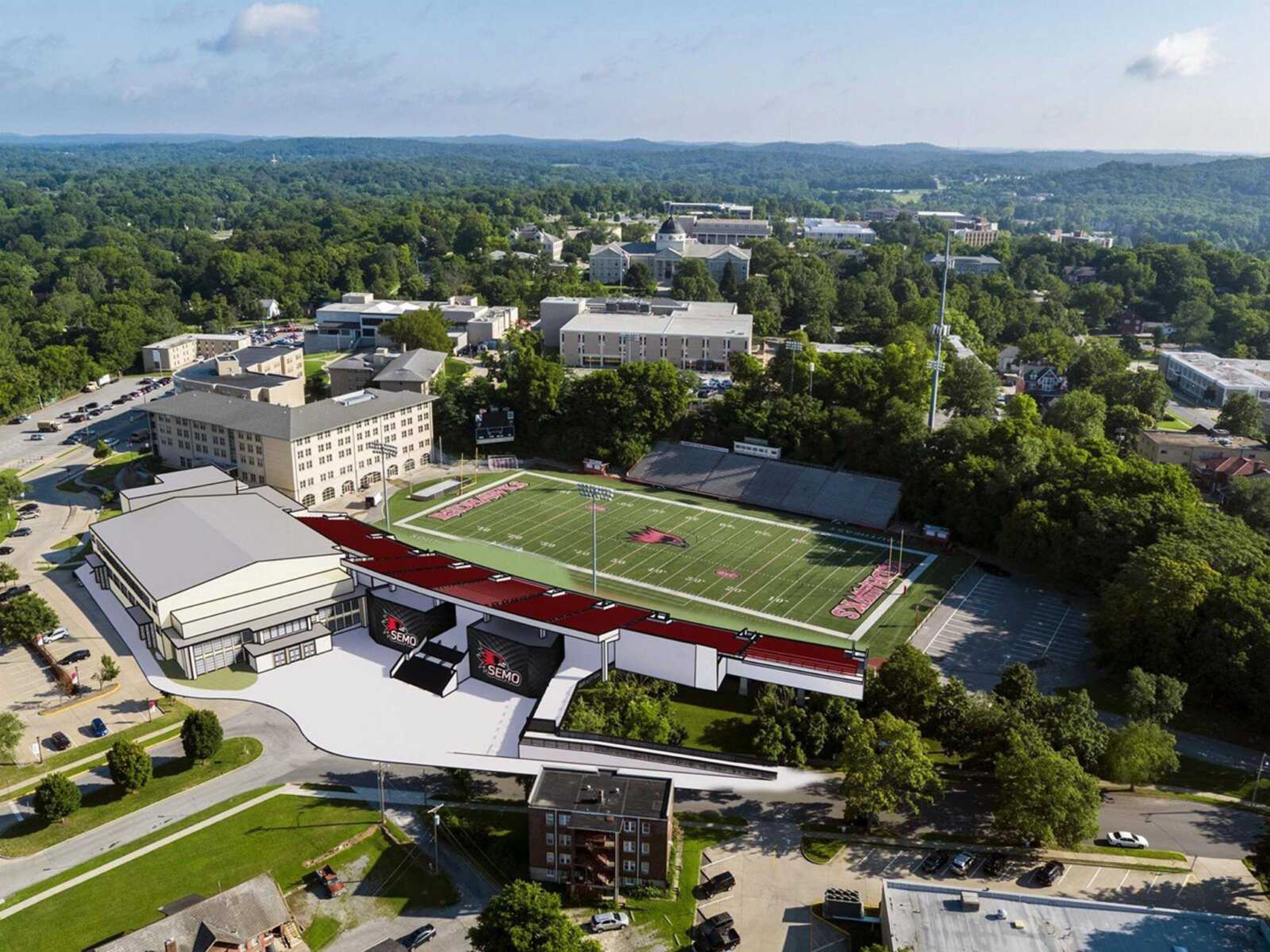Cape Girardeau officials invest in 'transformational' SEMO stadium rebuild
Cape Girardeau City Council members approved a $10.2 million investment in a "transformational" project at their meeting Monday, May 15. They agreed to send $600,000 annually for 17 years to Southeast Missouri State University's multiphase reconstruction of Houck Stadium. The funds will come from revenue the city receives from Century Casino Cape Girardeau...
Cape Girardeau City Council members approved a $10.2 million investment in a "transformational" project at their meeting Monday, May 15.
They agreed to send $600,000 annually for 17 years to Southeast Missouri State University's multiphase reconstruction of Houck Stadium. The funds will come from revenue the city receives from Century Casino Cape Girardeau.
Four council members and Mayor Stacy Kinder voted for the proposal. Council member Dan Presson, director of Career Services for the university, abstained.
Carlos Vargas, university president, explained that the stadium rebuild, as part of the university's master plan, will house athletic and academic facilities.
"This project is what you would know as a transformational project," he explained, saying that it will generate increased economic activity throughout the region.
The university has earmarked $12 million for initial phases of the project, and the state has added $11 million, with potentially $18 million more coming in the latest state budget. Vargas said the city's contribution will provide impetus for other bodies to contribute to the project.
"This partnership with the city, in my view, will provide us with important leverage to get other support to come also," he said.
Kinder echoed his comment.
"What is good for SEMO is good for Cape Girardeau, and what is good for Houck is good for downtown," she said.
Brady Barke, vice president for college athletics at SEMO, said rebuilding the stadium is about more than football and soccer.
In response to several audience members who questioned the expenditure, Liz Haynes, executive director of Old Town Cape, said the university's footprint falls within the downtown area and is, therefore, eligible to receive casino funds, as outlined in the city's casino funding policy.
"Houck Field truly is the doorstep to our community," she said. "Investing in this project will help make Houck Field a destination."
Earlier in the meeting Monday, council members unanimously voted to update the policy, which had been in effect since 2012. The new policy divides casino revenue sent to the city into three categories: "Casino obligation" — 10% to 15% of revenue — for regional economic development (3%) and capital projects in the downtown area (approximately 8%); "Legacy/endowment" — no additional funding in the future, with only accrued interest to be spent; and "Capital improvement, innovation, priorities" — 85% to 90% of the revenue — would go toward projects in the city's capital improvement plan and one-time costs associated with "innovation purchases" and other priorities.
Previous Southeast Missourian reporting indicates the city receives about $3 million annually in revenue from the casino — 10% of the casino's state gaming tax and $1 per person entering the casino.
Council member Mark Bliss said the project fits well with the guidance of the casino funding.
"This project fits exactly into the kind of projects that were envisioned when the casino agreement was developed," he said.
Council member Robbie Guard ticked off a litany of events and activities a reconstructed stadium could host, touting the university's Show Me Center and River Campus as regional attractions.
"I look at this project as exactly like that for our community — major impact for generations to come," he noted.
Guard also pointed out that if the casino funding goes away, so does the city's commitment to the university.
Council member Tameka Randle contended that a new stadium complex would drive economic activity in the region.
Broadway Theatre building
In other action, council members, without comment, approved a development plan and agreement for the former Broadway Theatre building.
With a last-minute appeal to prevent the city from razing the dilapidated structure, developer Brennon Todt offered the plan and agreement to save the historic downtown structure.
Todt's redevelopment plan would include three phases, ultimately including retail spaces, upscale apartments and a small movie theater. The plan would begin with work to stabilize the structure. If Todt meets deadlines to begin and complete the stabilization, he would receive $100,000 from the city, essentially reimbursement for some of the cost. If he completes the first phase of the project — three retail spaces and two upper-level apartments — he would receive another $50,000 from the city.
If Todt fully completes all phases of the project, he would get a potential 50% property tax discount for up to 25 years and sales tax reimbursement for "development costs".
A fire heavily damaged the structure in March 2021. The building has sat vacant for more than two decades.
Connect with the Southeast Missourian Newsroom:
For corrections to this story or other insights for the editor, click here. To submit a letter to the editor, click here. To learn about the Southeast Missourian’s AI Policy, click here.









